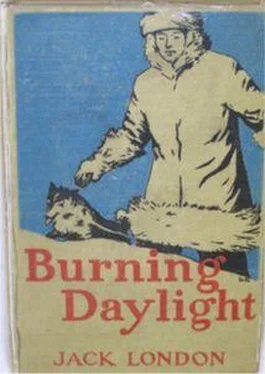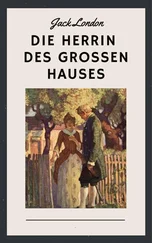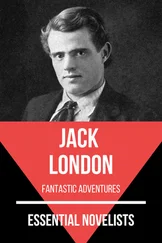Jack London - Burning Daylight
Здесь есть возможность читать онлайн «Jack London - Burning Daylight» весь текст электронной книги совершенно бесплатно (целиком полную версию без сокращений). В некоторых случаях можно слушать аудио, скачать через торрент в формате fb2 и присутствует краткое содержание. Год выпуска: 1910, Жанр: Классическая проза, Природа и животные, Путешествия и география, на английском языке. Описание произведения, (предисловие) а так же отзывы посетителей доступны на портале библиотеки ЛибКат.
- Название:Burning Daylight
- Автор:
- Жанр:
- Год:1910
- ISBN:нет данных
- Рейтинг книги:5 / 5. Голосов: 1
-
Избранное:Добавить в избранное
- Отзывы:
-
Ваша оценка:
- 100
- 1
- 2
- 3
- 4
- 5
Burning Daylight: краткое содержание, описание и аннотация
Предлагаем к чтению аннотацию, описание, краткое содержание или предисловие (зависит от того, что написал сам автор книги «Burning Daylight»). Если вы не нашли необходимую информацию о книге — напишите в комментариях, мы постараемся отыскать её.
Burning Daylight — читать онлайн бесплатно полную книгу (весь текст) целиком
Ниже представлен текст книги, разбитый по страницам. Система сохранения места последней прочитанной страницы, позволяет с удобством читать онлайн бесплатно книгу «Burning Daylight», без необходимости каждый раз заново искать на чём Вы остановились. Поставьте закладку, и сможете в любой момент перейти на страницу, на которой закончили чтение.
Интервал:
Закладка:
The plan was his own, but he sent down to the States for competent engineers to carry it out. In the Rinkabilly watershed, eighty miles away, he built his reservoir, and for eighty miles the huge wooden conduit carried the water across country to Ophir. Estimated at three millions, the reservoir and conduit cost nearer four. Nor did he stop with this. Electric power plants were installed, and his workings were lighted as well as run by electricity. Other sourdoughs, who had struck it rich in excess of all their dreams, shook their heads gloomily, warned him that he would go broke, and declined to invest in so extravagant a venture.
But Daylight smiled, and sold out the remainder of his town-site holdings. He sold at the right time, at the height of the placer boom. When he prophesied to his old cronies, in the Moosehorn Saloon, that within five years town lots in Dawson could not be given away, while the cabins would be chopped up for firewood, he was laughed at roundly, and assured that the mother-lode would be found ere that time. But he went ahead, when his need for lumber was finished, selling out his sawmills as well. Likewise, he began to get rid of his scattered holdings on the various creeks, and without thanks to any one he finished his conduit, built his dredges, imported his machinery, and made the gold of Ophir immediately accessible. And he, who five years before had crossed over the divide from Indian River and threaded the silent wilderness, his dogs packing Indian fashion, himself living Indian fashion on straight moose meat, now heard the hoarse whistles calling his hundreds of laborers to work, and watched them toil under the white glare of the arc-lamps.
But having done the thing, he was ready to depart. And when he let the word go out, the Guggenhammers vied with the English concerns and with a new French company in bidding for Ophir and all its plant. The Guggenhammers bid highest, and the price they paid netted Daylight a clean million. It was current rumor that he was worth anywhere from twenty to thirty millions. But he alone knew just how he stood, and that, with his last claim sold and the table swept clean of his winnings, he had ridden his hunch to the tune of just a trifle over eleven millions.
His departure was a thing that passed into the history of the Yukon along with his other deeds. All the Yukon was his guest, Dawson the seat of the festivity. On that one last night no man's dust save his own was good. Drinks were not to be purchased. Every saloon ran open, with extra relays of exhausted bartenders, and the drinks were given away. A man who refused this hospitality, and persisted in paying, found a dozen fights on his hands. The veriest chechaquos rose up to defend the name of Daylight from such insult. And through it all, on moccasined feet, moved Daylight, hell-roaring Burning Daylight, over-spilling with good nature and camaraderie, howling his he-wolf howl and claiming the night as his, bending men's arms down on the bars, performing feats of strength, his bronzed face flushed with drink, his black eyes flashing, clad in overalls and blanket coat, his ear-flaps dangling and his gauntleted mittens swinging from the cord across the shoulders. But this time it was neither an ante nor a stake that he threw away, but a mere marker in the game that he who held so many markers would not miss.
As a night, it eclipsed anything that Dawson had ever seen. It was Daylight's desire to make it memorable, and his attempt was a success. A goodly portion of Dawson got drunk that night. The fall weather was on, and, though the freeze-up of the Yukon still delayed, the thermometer was down to twenty-five below zero and falling. Wherefore, it was necessary to organize gangs of life-savers, who patrolled the streets to pick up drunken men from where they fell in the snow and where an hour's sleep would be fatal. Daylight, whose whim it was to make them drunk by hundreds and by thousands, was the one who initiated this life saving. He wanted Dawson to have its night, but, in his deeper processes never careless nor wanton, he saw to it that it was a night without accident. And, like his olden nights, his ukase went forth that there should be no quarrelling nor fighting, offenders to be dealt with by him personally. Nor did he have to deal with any. Hundreds of devoted followers saw to it that the evilly disposed were rolled in the snow and hustled off to bed. In the great world, where great captains of industry die, all wheels under their erstwhile management are stopped for a minute.
But in the Klondike, such was its hilarious sorrow at the departure of its captain, that for twenty-four hours no wheels revolved. Even great Ophir, with its thousand men on the pay-roll, closed down. On the day after the night there were no men present or fit to go to work.
Next morning, at break of day, Dawson said good-by. The thousands that lined the bank wore mittens and their ear-flaps pulled down and tied. It was thirty below zero, the rim-ice was thickening, and the Yukon carried a run of mush-ice. From the deck of the Seattle, Daylight waved and called his farewells. As the lines were cast off and the steamer swung out into the current, those near him saw the moisture well up in Daylight's eyes. In a way, it was to him departure from his native land, this grim Arctic region which was practically the only land he had known. He tore off his cap and waved it.
"Good-by, you-all!" he called. "Good-by, you-all!"
PART II
CHAPTER I
In no blaze of glory did Burning Daylight descend upon San Francisco. Not only had he been forgotten, but the Klondike along with him. The world was interested in other things, and the Alaskan adventure, like the Spanish War, was an old story. Many things had happened since then. Exciting things were happening every day, and the sensation-space of newspapers was limited. The effect of being ignored, however, was an exhilaration. Big man as he had been in the Arctic game, it merely showed how much bigger was this new game, when a man worth eleven millions, and with a history such as his, passed unnoticed.
He settled down in St. Francis Hotel, was interviewed by the cub-reporters on the hotel-run, and received brief paragraphs of notice for twenty-four hours. He grinned to himself, and began to look around and get acquainted with the new order of beings and things. He was very awkward and very self-possessed. In addition to the stiffening afforded his backbone by the conscious ownership of eleven millions, he possessed an enormous certitude.
Nothing abashed him, nor was he appalled by the display and culture and power around him. It was another kind of wilderness, that was all; and it was for him to learn the ways of it, the signs and trails and water-holes where good hunting lay, and the bad stretches of field and flood to be avoided. As usual, he fought shy of the women. He was still too badly scared to come to close quarters with the dazzling and resplendent creatures his own millions made accessible.
They looked and longed, but he so concealed his timidity that he had all the seeming of moving boldly among them. Nor was it his wealth alone that attracted them. He was too much a man, and too much an unusual type of man. Young yet, barely thirty-six, eminently handsome, magnificently strong, almost bursting with a splendid virility, his free trail-stride, never learned on pavements, and his black eyes, hinting of great spaces and unwearied with the close perspective of the city dwellers, drew many a curious and wayward feminine glance. He saw, grinned knowingly to himself, and faced them as so many dangers, with a cool demeanor that was a far greater personal achievement than had they been famine, frost, or flood.
He had come down to the States to play the man's game, not the woman's game; and the men he had not yet learned. They struck him as soft—soft physically; yet he divined them hard in their dealings, but hard under an exterior of supple softness. It struck him that there was something cat-like about them. He met them in the clubs, and wondered how real was the good-fellowship they displayed and how quickly they would unsheathe their claws and gouge and rend. "That's the proposition," he repeated to himself; "what will they-all do when the play is close and down to brass tacks?" He felt unwarrantably suspicious of them. "They're sure slick," was his secret judgment; and from bits of gossip dropped now and again he felt his judgment well buttressed. On the other hand, they radiated an atmosphere of manliness and the fair play that goes with manliness. They might gouge and rend in a fight—which was no more than natural; but he felt, somehow, that they would gouge and rend according to rule. This was the impression he got of them—a generalization tempered by knowledge that there was bound to be a certain percentage of scoundrels among them.
Читать дальшеИнтервал:
Закладка:
Похожие книги на «Burning Daylight»
Представляем Вашему вниманию похожие книги на «Burning Daylight» списком для выбора. Мы отобрали схожую по названию и смыслу литературу в надежде предоставить читателям больше вариантов отыскать новые, интересные, ещё непрочитанные произведения.
Обсуждение, отзывы о книге «Burning Daylight» и просто собственные мнения читателей. Оставьте ваши комментарии, напишите, что Вы думаете о произведении, его смысле или главных героях. Укажите что конкретно понравилось, а что нет, и почему Вы так считаете.












